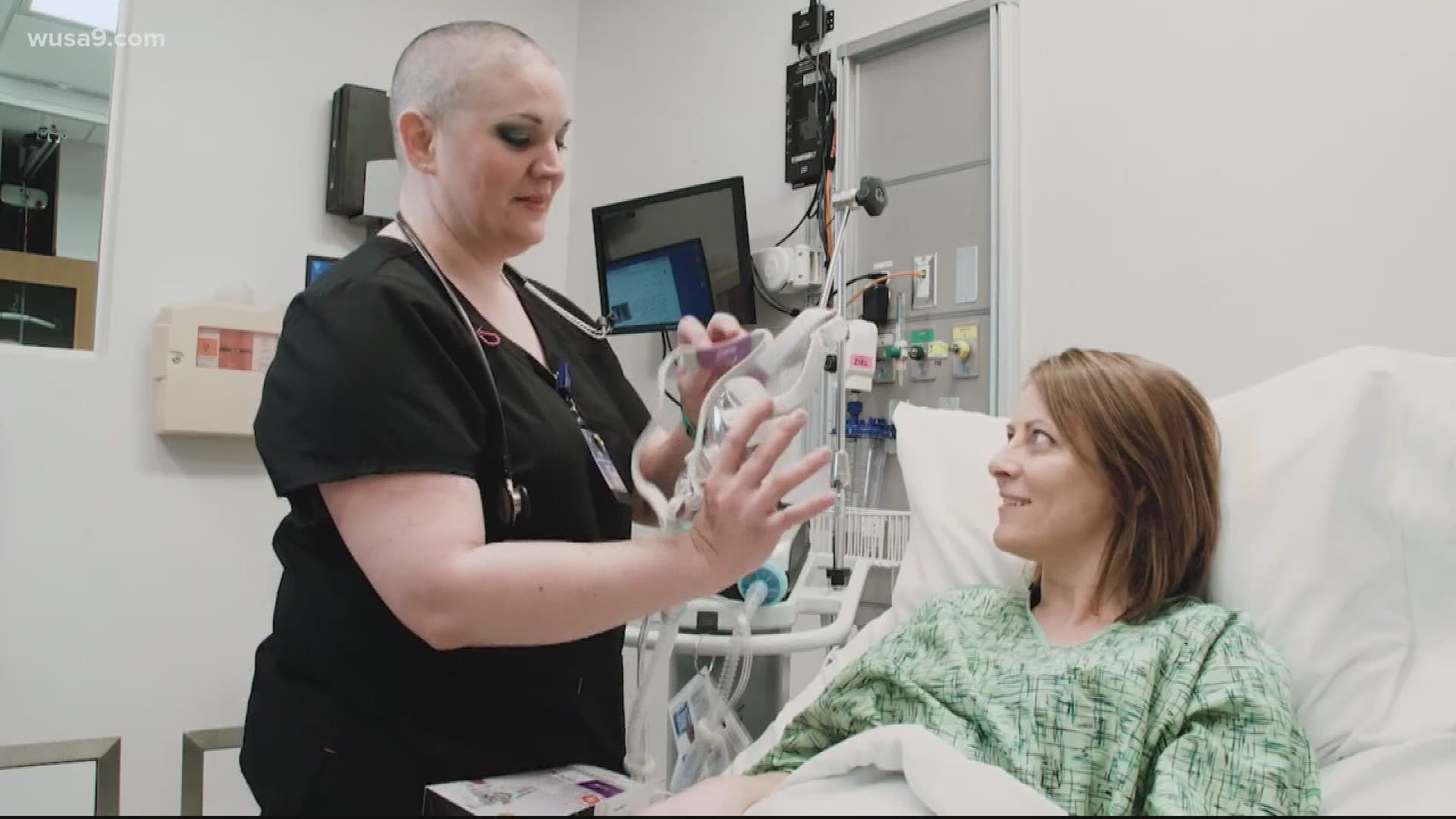BETHESDA, Md. — We've been talking a lot about the heroism of doctors and nurses in this crisis, but there's another critical health care practitioner who deserves a ton of recognition: respiratory therapists.
You can forgive their swagger in a TikTok video, because respiratory therapists are literally giving the breath of life to critically ill COVID-19 patients.
"You honestly can't go through a respiratory pandemic without having a respiratory therapist," said Kayla Morton, who stars in the video.
It's respiratory therapists who are running the ventilators that we've heard so much about during this pandemic. Julie Eason leads a team helping patients in New York. She said the disease has made some patients too tired to breath.
"That's the point that they've gotten to. Their muscles are exhausted and they literally are so tired they can't breathe," she said.
Many of the therapists are exhausted, too, by long hours and too much death.
Monica Raich is a respiratory therapist at Inova Fairfax, where she's watched people in the prime of life struggle to breathe.
"They are the hardest for my staff to handle emotionally," she said, her voice breaking, "because they are so young."
The National Board for Respiratory Care has launched a social media campaign, paying tribute to therapists and encouraging more people to go into the field.
Even before the crisis, the number of respiratory therapists was falling while the demand was climbing.
The Bureau of Labor Statistics is predicting demand for therapists will grow by more than 20% in the next eight years. It requires at least an associate's degree to become a respiratory therapist, but there are also therapists with bachelor's and master's degrees, according to the National Board for Respiratory Care. Salaries run from an average of as low as $49,220 a year in Mississippi, to as high as $79,640 in California, according to the BLS.
"Being able to help someone breathe, or make their breathing easier, is this most rewarding thing," said Raich. "We really need people to help save these people's lives, and be able to help them get home to their families."
The families thank you, and so do all the rest of us.

